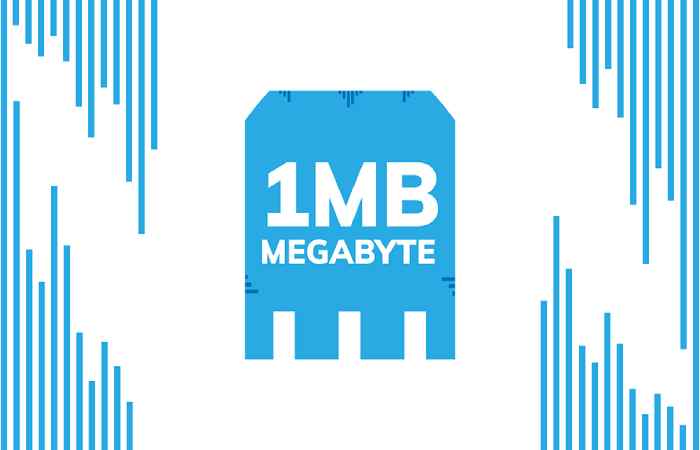
Megabyte Write for us
A megabyte is a unit of digital information storage or data size. It is commonly used in computing and digital technology to measure the amount of data or the storage capacity of devices. One megabyte (MB) equals 1,048,576 bytes or 2^20 bytes. It is a multiple of the byte, the fundamental unit of digital information storage.
To submit your article, you can email us at contact@techgeeksblogger.com
Megabytes remain used to describe the size of files, such as documents, images, videos, and software programs. For example, a typical MP3 audio file may be around 3-5 megabytes in size, while a high-resolution photo can range from a few megabytes to tens of megabytes.
It’s worth noting that with the advancement of technology, more extensive data storage units such as gigabytes (GB) and terabytes (TB) have become more common. These units represent even more significant amounts of data, with 1 gigabyte equaling 1,073,741,824 bytes or 2^30 bytes and one terabyte equaling 1,099,511,627,776 or 2^40 bytes.
Which is bigger, KB or GB or MB?
In terms of size, the order from smallest to largest is kilobyte (KB), megabyte (MB), and gigabyte (GB).
- 1 kilobyte (KB) is equal to 1,024 bytes or 2^10 bytes.
- One megabyte (MB) is equal to 1,048,576 bytes or 2^20 bytes.
- 1 gigabyte (GB) is equal to 1,073,741,824 bytes or 2^30 bytes.
Therefore, a kilobyte is smaller than a megabyte, and a megabyte is smaller than a gigabyte.
What is 1 MB equal Precisely to?
One megabyte (MB) is equal to 1,048,576 bytes or 2^20 bytes. This is the standard definition of a megabyte in the binary system commonly used in computing.
However, in some contexts, “megabyte” refers to a million bytes (10^6 bytes) in the decimal system. This remains often seen in marketing or advertising where storage capacities of devices remain mentioned.
It’s important to note that the binary definition is the more precise and accurate representation of a megabyte in the context of computing and digital technology.
Why is one gb Equal to 1024 MB?
1 gigabyte (GB) is often considered equal to 1,024 megabytes (MB) due to the difference between the decimal and binary systems of numbering.
In the decimal system, which remains commonly used for everyday calculations, each successive unit is a multiple of 10. For example, 1 kilometer (km) is equal to 1,000 meters (m), and 1 megabyte (MB) is equal to 1,000 kilobytes (KB).
However, in the binary system, which remains used in computing and digital technology, each successive unit is a multiple of 2. This is because computers use binary code, which consists of 0s and 1s, as the fundamental representation of data. In binary, 2 is the base number, not 10.
Since binary remains based on powers of 2, 1 kilobyte (KB) equals 2^10 bytes (1,024 bytes) in binary, not 1,000 bytes as in the decimal system. Similarly, 1 megabyte (MB) is equal to 2^20 bytes (1,048,576 bytes), and 1 gigabyte (GB) is similar to 2^30 bytes (1,073,741,824 bytes) in binary.
Due to historical reasons and the difference between the decimal and binary systems, there has been some ambiguity and confusion in how storage capacities remain represented. However, there has been a trend toward using binary definitions to align with how computers and digital systems operate. In recent years
About Megabyte
A megabyte (MB) is a unit of digital information storage or data size. It is commonly used in computing and digital technology to measure the amount of data or the storage capacity of devices.
In the binary system, the standard in computing, one megabyte equals 1,048,576 bytes or 2^20 bytes. This is the precise definition of a megabyte in terms of binary calculations.
However, in some contexts, the term “megabyte” is used in the decimal system to represent a million bytes (10^6). This usage is sometimes seen in marketing or advertising, mainly when referring to the storage capacities of devices. Notably, this decimal definition of a megabyte is not as accurate regarding binary calculations and computing.
To avoid confusion, using the binary definition when discussing data storage capacities in computing and digital technology is often recommended. This ensures consistency and compatibility with the way computers and digital systems operate.
How to Submit Your Articles?
To submit your article, you can email us at contact@techgeeksblogger.com
Why Write for Tech Geeks Blogger?
- Writing for Tech Geeks Blogger can give massive exposure to your website for customers looking for Megabyte.
- Tech Geeks Blogger presence is on social media and will share your article for the Megabyte related audience.
- You can reach out to Megabyte enthusiasts.
Search Terms Related to Megabyte Write for us
Mebibyte
megabite (disambiguation).
Byton M-Byte.
International System of Quantities.
binary prefixes
multiples
International Electrotechnical Commission
kilo-,
IEEE,
EU,
ISO
NIST.
International System of Units
International Electrotechnical Commission
computer networking
Search Terms for Megabyte Write for us
submit an article
submit post
guest posts wanted
write for us
looking for guest posts
guest post
guest posts wanted
contributing writer
guest posting guidelines
become an author
writers wanted
contributor guidelines
suggest a post
become a guest blogger
what is a megabyte in computer
1 megabyte is equal to 1024 gigabytes
[what is a megabyte of data]
[what are megabytes used for]
[what is a gigabyte]
what mb mean in text
how many bytes are in a gigabyte
how many bytes are in a kilobyte
Guidelines of the Article – Megabyte Write for us
- We at Tech Geeks Blogger welcome fresh and unique content related to Megabyte.
- Tech Geeks Blogger allows a minimum of 500+ words related to Megabyte.
- The editorial team of Tech Geeks Blogger does not encourage promotional content related to its articles.
- For publishing article at Tech Geeks Blogger email us at contact@techgeeksblogger.com
- Tech Geeks Blogger allows articles related to Technology, Business, Marketing, General, News, Media, Digital Marketing, Telecom and Gadgets.